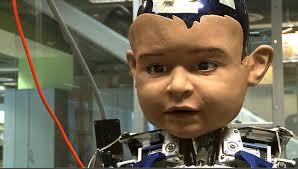Hod Lipson loves robots, but love is complicated.
The robotics engineer is among the growing chorus of those concerned about technological unemployment leading to social unrest, something Norbert Wiener warned of more than 60 years ago. Is it, at long last, in this Digital Age, happening?
In a long-form MIT Technology Review article, David Rotman wonders if the new technologies may be contributing to wealth inequality and could ultimately lead to an even a greater divide, while considering the work of analysts on both sides of automation issue, including Sir Tony Atkinson, Martin Ford, Andrew McAfee and David Autor. The opening:
The way Hod Lipson describes his Creative Machines Lab captures his ambitions: “We are interested in robots that create and are creative.” Lipson, an engineering professor at Cornell University (this July he’s moving his lab to Columbia University), is one of the world’s leading experts on artificial intelligence and robotics. His research projects provide a peek into the intriguing possibilities of machines and automation, from robots that “evolve” to ones that assemble themselves out of basic building blocks. (His Cornell colleagues are building robots that can serve as baristas and kitchen help.) A few years ago, Lipson demonstrated an algorithm that explained experimental data by formulating new scientific laws, which were consistent with ones known to be true. He had automated scientific discovery.
Lipson’s vision of the future is one in which machines and software possess abilities that were unthinkable until recently. But he has begun worrying about something else that would have been unimaginable to him a few years ago. Could the rapid advances in automation and digital technology provoke social upheaval by eliminating the livelihoods of many people, even as they produce great wealth for others?
“More and more computer-guided automation is creeping into everything from manufacturing to decision making,” says Lipson. In the last two years alone, he says, the development of so-called deep learning has triggered a revolution in artificial intelligence, and 3-D printing has begun to change industrial production processes. “For a long time the common understanding was that technology was destroying jobs but also creating new and better ones,” says Lipson. “Now the evidence is that technology is destroying jobs and indeed creating new and better ones but also fewer ones. It is something we as technologists need to start thinking about.”•


